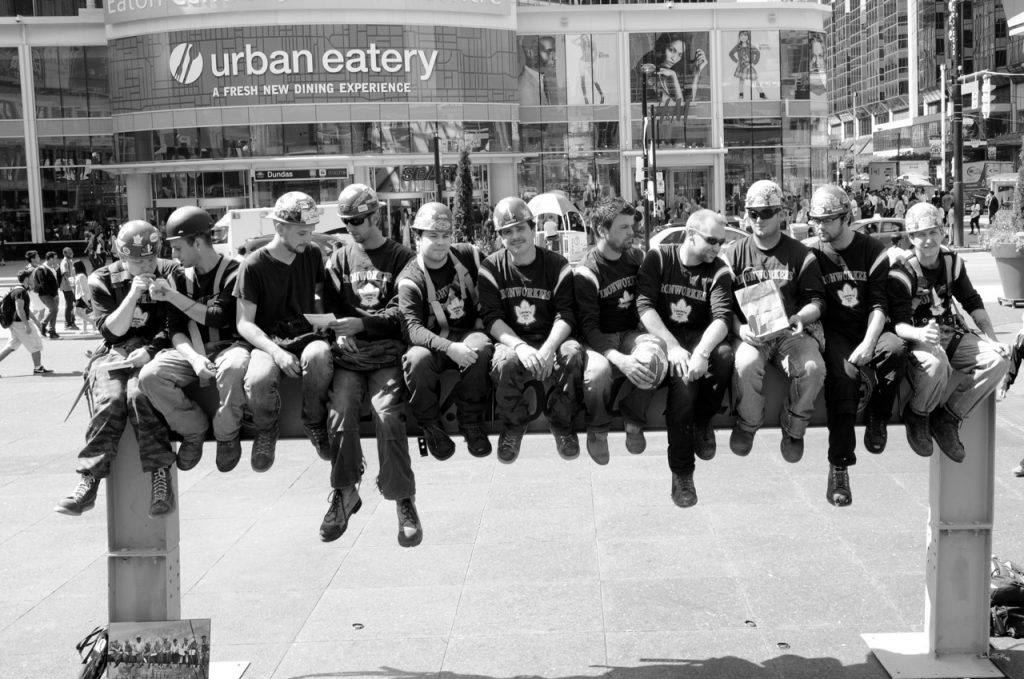What Is Apprenticeship?
Apprenticeship is paid work-based training combined with post-secondary education. An apprentice spends approximately 80% of their time learning their skills on the job (under the direction of a highly skilled journeyperson) and approximately 20% of their time learning in a classroom setting.
While Apprenticeship programs can range from three to five years in length most, however, are four years. When an apprentice finishes their program, they are required to write a completion exam in order to receive their Certificate. Once they have received their certificate they become known as a journeyperson and will earn the full journeyperson wage.
Apprentices earn while they learn! An apprentice will start out making 60 percent of a journeyperson’s wage for the trade they are learning.
The bottom line is – apprentices gain valuable skills that will provide them with a long-term, financially successful and personally rewarding career. What more can you ask for? Explore this site to see if apprenticeship is for you!
Your Ticket
Certificate of Apprenticeship, Certificate of Qualification, and Interprovincial Standard Endorsement – also known as Red Seal – are commonly referred to in the trades as your “ticket”. The Interprovincial Standard Endorsement is often called a “Red Seal” because it is identified as a Red Seal or sticker on the Certificate of Apprenticeship or Qualification.
What does having a “ticket” do for your career? Being a certified ironworker identifies you as a highly skilled worker, someone in demand by employers and someone who is paid an excellent wage.
Certification
When an apprentice finishes their entire program – including all required workplace and in-school training – they are required to write a completion exam. Upon successful completion of their program and writing of the completion exam, the apprentice is awarded their Certificate of Apprenticeship, as well as their Certificate of Qualification and, if applicable, the Interprovincial Standard Endorsement, also known as Red Seal. The apprentice is now considered a qualified, highly skilled journeyperson.
Certification is a lot more than just a piece of paper. Certification increases earning potential and employment options, and, in the case of Red Seal trades, makes it possible to work in any province or territory across Canada.
Certification Examinations
The completion exam is most often written on the last day of the final level of in-school training. The exam to acquire the Certificate of Apprenticeship and Certificate of Qualification is usually written upon completion of the final level of in-school training. In most cases, the exam will be arranged so that the entire class will write as a group in their college or training centre. In all examinations, the pass-mark is 70% and the time limit for the exam is three hours.
Apprenticeship Trends
A March 1997 survey of 1,221 individuals in Ontario’s apprenticeship system reports that youth start apprenticeships because they believe apprenticeable occupations have better wages, benefits and have more job security than other occupations. Alberta apprentices tended to say that they started their apprenticeships based on personal interest in their trade.
So while reasons for entering an apprenticeship might differ, choosing an apprentice-able occupation pays off for youth in terms of employment. Only 4 per cent of Ontario youth journeypersons were unemployed at the time of the survey, compared to a provincial youth unemployment rate of 17.4 per cent at the time.
In a nutshell, these numbers indicate that for persons aged 18-24, learning a trade gives you a much better chance of employment than for other people in your age group!
More and more, the trades are becoming the career choice for Canadians. As quoted in the Globe and Mail on March 6, 2000 – “An increasing number of Canadians are finding that work in the skilled trades can be both rewarding and lucrative”.

Apprentices can contact the Apprentice Coordinator, Clinton Knowlton, to submit proof of hours if they are due for the next pay raise.
416-236-4026, ext. 226, or cknowlton@iw721.org.
APPRENTICE CLASSES: The return date & start dates for all Rodworker & Ironworker Apprentice classes can be found out by calling 416-236-4026, ext. 329.
